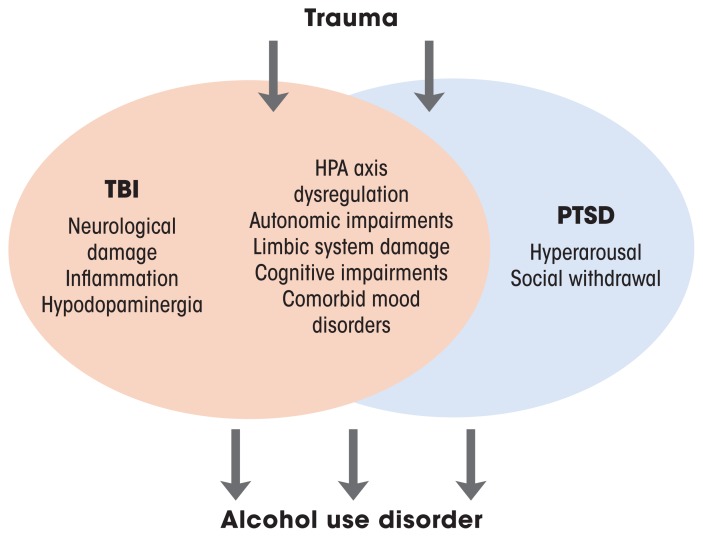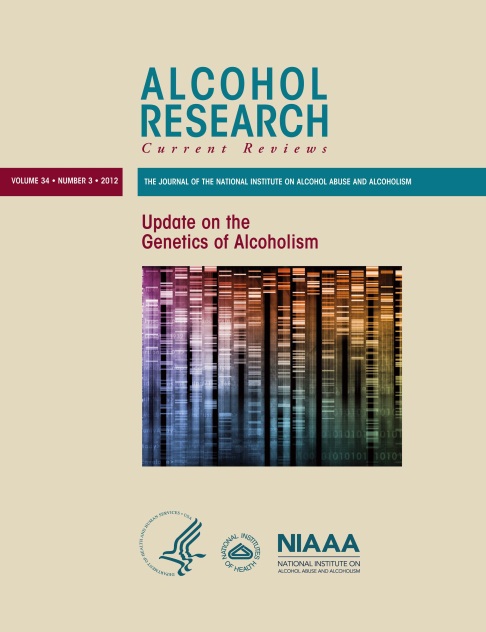酒精使用障碍与创伤性脑损伤
IF 6.8
1区 医学
Q1 SUBSTANCE ABUSE
Alcohol Research : Current Reviews
Pub Date : 2018-01-01
引用次数: 0
摘要
酒精使用与创伤性脑损伤(TBI)有着不可分割的双向联系。酒精中毒是TBI最强的预测因素之一,而且相当大比例的TBI发生在醉酒的个体中。一种反向关系也正在出现,例如TBI可以作为酒精使用障碍(AUD)的风险因素或调节过程。重要的是,脑外伤后饮酒是康复结果、预后和额外头部损伤的关键预测因素。这篇综述概述了TBI和AUD之间的双向关系,并讨论了潜在的神经心理学和神经生物学机制,可能是这种关系的基础。本文章由计算机程序翻译,如有差异,请以英文原文为准。

Alcohol Use Disorder and Traumatic Brain Injury.
Alcohol use and traumatic brain injury (TBI) are inextricably and bidirectionally linked. Alcohol intoxication is one of the strongest predictors of TBI, and a substantial proportion of TBIs occur in intoxicated individuals. An inverse relationship is also emerging, such that TBI can serve as a risk factor for, or modulate the course of, alcohol use disorder (AUD). Critically, alcohol use after TBI is a key predictor of rehabilitation outcomes, prognosis, and additional head injuries. This review provides a general overview of the bidirectional relationship between TBI and AUD and a discussion of potential neuropsychological and neurobiological mechanisms that might underlie the relationship.
求助全文
通过发布文献求助,成功后即可免费获取论文全文。
去求助
来源期刊

Alcohol Research : Current Reviews
SUBSTANCE ABUSE-
自引率
1.10%
发文量
0
期刊介绍:
Alcohol Research: Current Reviews (ARCR) is an open-access, peer-reviewed journal published by the National Institute on Alcohol Abuse and Alcoholism (NIAAA) at the National Institutes of Health. Starting from 2020, ARCR follows a continuous, rolling publication model, releasing one virtual issue per yearly volume. The journal offers free online access to its articles without subscription or pay-per-view fees. Readers can explore the content of the current volume, and past volumes are accessible in the journal's archive. ARCR's content, including previous titles, is indexed in PubMed, PsycINFO, Scopus, and Web of Science.
 求助内容:
求助内容: 应助结果提醒方式:
应助结果提醒方式:


